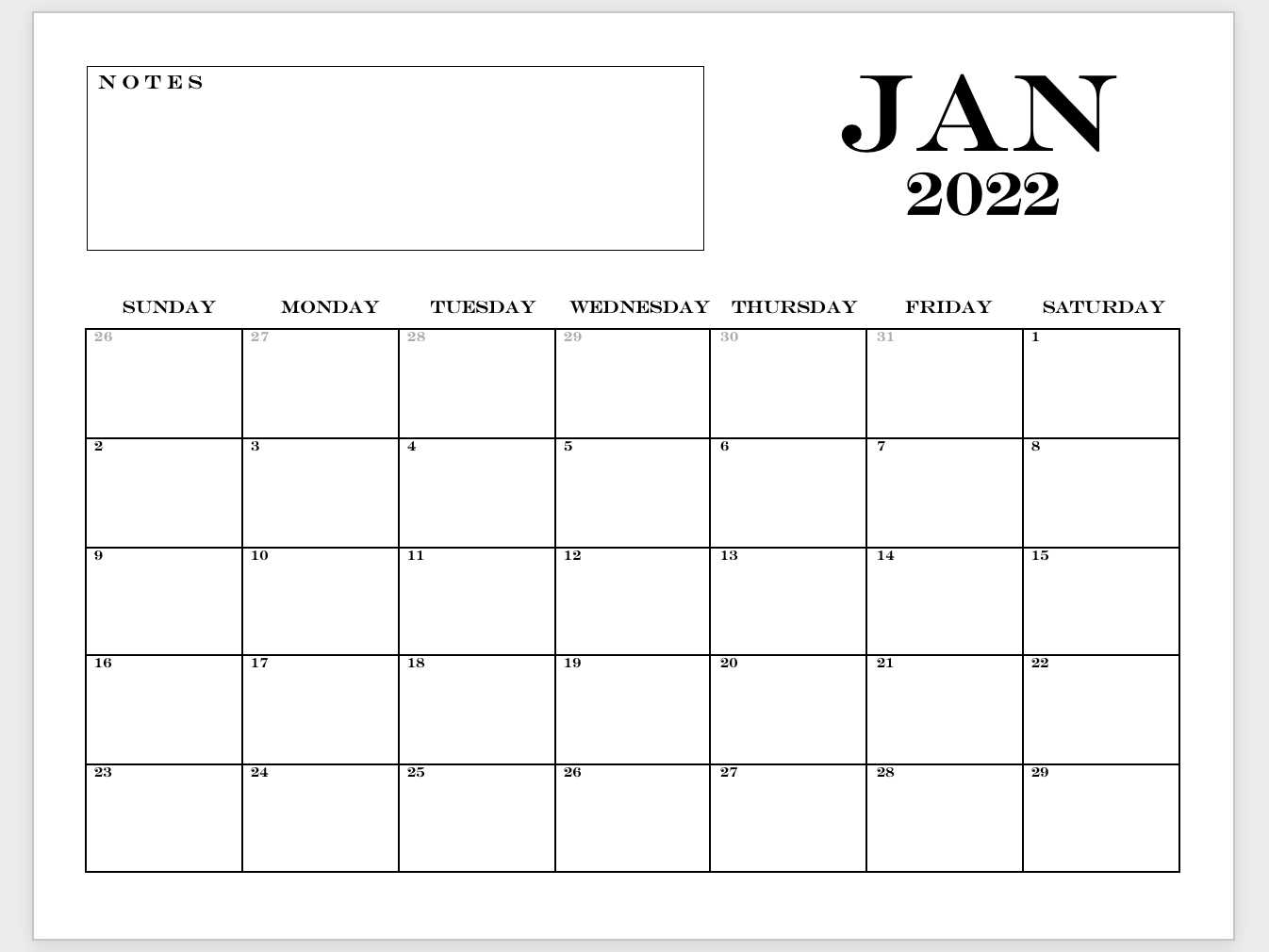
In a fast-paced world, staying organized is essential to manage daily tasks, important deadlines, and special occasions. Tools designed to simplify your planning process can save valuable time, allowing you to focus on what matters most. Having a structured format to map out your days, weeks, and months makes it easier to track your commitments and reach your goals without unnecessary stress.
Whether you are scheduling personal milestones or work-related activities, using structured layouts to map out your agenda can be incredibly beneficial. These pre-made designs are created with simplicity and functionality in mind, offering customizable options for any lifestyle or professional need. You can use them to plan ahead, revisit past accomplishments, or just ensure your days stay organized.
Our discussion will explore various ways the
Vertex 42 Calendar Template: A Comprehensive Guide
The following guide offers a thorough understanding of how to utilize structured scheduling layouts to effectively plan and organize time-related activities. These formats provide easy-to-follow, pre-arranged grids and layouts, enabling users to manage their personal and professional tasks seamlessly. By using a pre-built structure, it becomes simpler to outline monthly events, track deadlines, and monitor progress.
Why Use Pre-Formatted Scheduling Layouts?
Using a structured layout helps simplify the process of planning by minimizing the effort needed to organize events and reminders. These pre-made grids are accessible and save time, especially for those managing multiple responsibilities. They are designed for flexibility, allowing users to adapt them to a variety of needs, from personal goal tracking to professional project timelines.
Benefits of
Overview of Vertex 42 Calendar Features
This section explores a collection of practical tools designed for easy planning and tracking of schedules. These layouts cater to both personal and professional needs, offering flexible structures for daily, weekly, or monthly organization. Users benefit from tools that simplify the planning process and allow for efficient goal setting and event reminders.
Customization Options
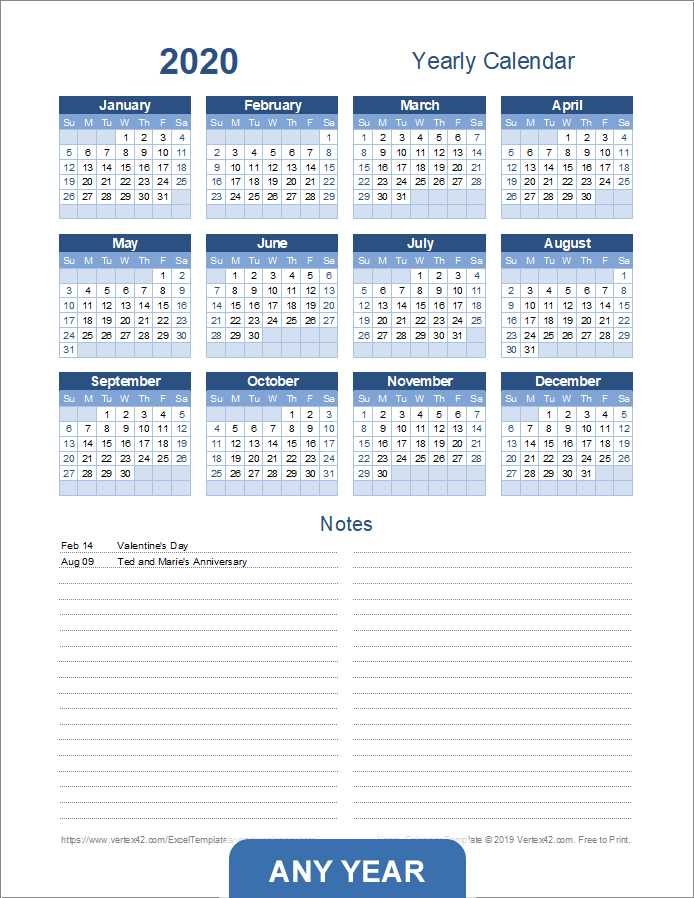
One of the key features includes extensive personalization settings. Users can adjust elements such as date ranges, event names, and specific notes, ensuring each layout meets their unique needs. Additionally, there are options for color coding and highlighting specific entries, making it easy to differentiate between various tasks and priorities at a glance.
Yearly and Monthly Layouts
Another useful component is the variety of formats for annual and monthly arrangements. Each format is crafted to balance
How to Download and Install Templates
Accessing ready-to-use formats for organizing your schedule or projects can significantly simplify planning. To get started, follow these steps for downloading and setting up your preferred layouts efficiently.
- Visit the official website or trusted source where various layout formats are available for download.
- Browse through the available designs and choose one that best suits your needs. Look for categories that match the type of document or layout you prefer.
- Click on the download button next to the design you selected. Ensure you save the file in a location on your device where it’s easily accessible.
Once the file is downloaded, follow these instructions to open and start using it:
- Open with compatible software: Many layout formats are compatible with popular spreadsheet and document applications. Ensure you h
Customizing Your Calendar Layout
Creating a personalized schedule layout allows you to structure your days, weeks, or months to suit your unique preferences and requirements. Whether you aim for a clean, minimal design or a more vibrant and detailed layout, adjustments can enhance usability and make daily planning more intuitive.
Start by adjusting the structure to highlight essential tasks or activities. Modify sections by resizing columns, altering font sizes, or reordering rows for easy reading. For example, increasing the width of days with frequent entries or decreasing space in less busy areas can make the layout fit your lifestyle.
Experiment with colors and themes to improve clarity. Colors can help distinguish work-related tasks from personal obligations, while themes
Best Uses for Vertex 42 Calendars
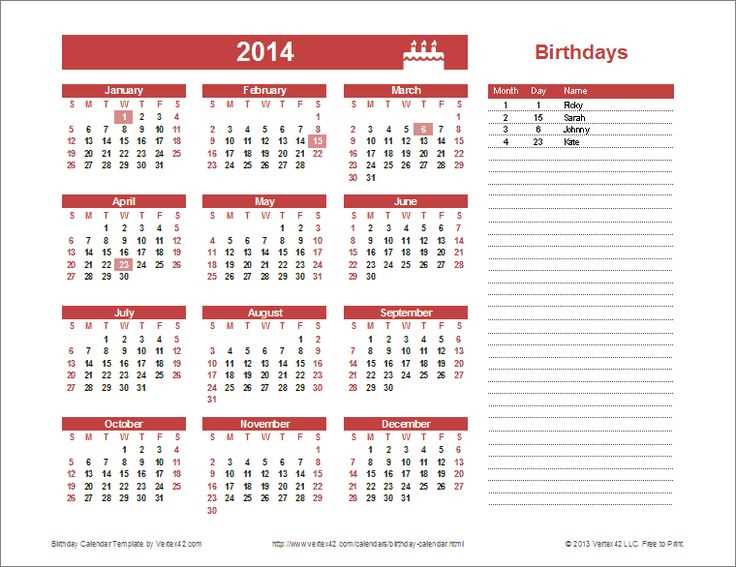
These versatile planning tools serve various needs, making it easier to stay organized, remember important dates, and manage daily tasks effectively. Here are some of the top ways to make the most out of these organizational aids.
1. Scheduling Personal Events
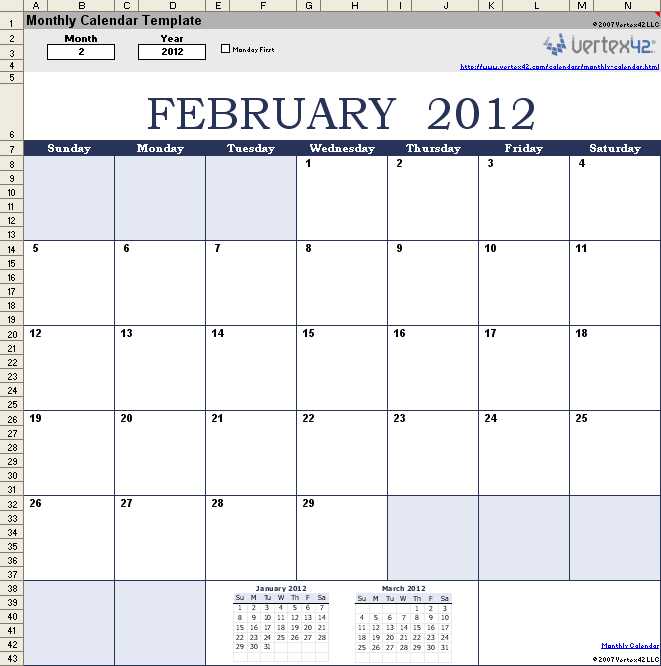
- Family Activities: Keep track of family birthdays, anniversaries, and other special events in one organized place, allowing everyone to stay informed.
- Appointments: Record doctor visits, meetings, or appointments, so you never miss important commitments.
- Vacation Planning: Outline travel dates, activities, and key details for upcoming trips for smooth and enjoyable vacations.
Adding Personal Events and Reminders
Incorporating personal occasions and alerts into your scheduling tool can greatly enhance your organizational capabilities. By tracking important dates and tasks, you can ensure that you never miss out on significant events or responsibilities. This section explores effective methods for integrating your unique milestones and reminders, allowing for a more tailored and functional planning experience.
Identifying Key Dates
Begin by pinpointing important dates that are meaningful to you, such as birthdays, anniversaries, or significant appointments. Make a comprehensive list of these occasions, considering both recurring events and one-time engagements. This practice not only aids in visualizing your schedule but also helps prioritize your commitments.
Setting Up Alerts
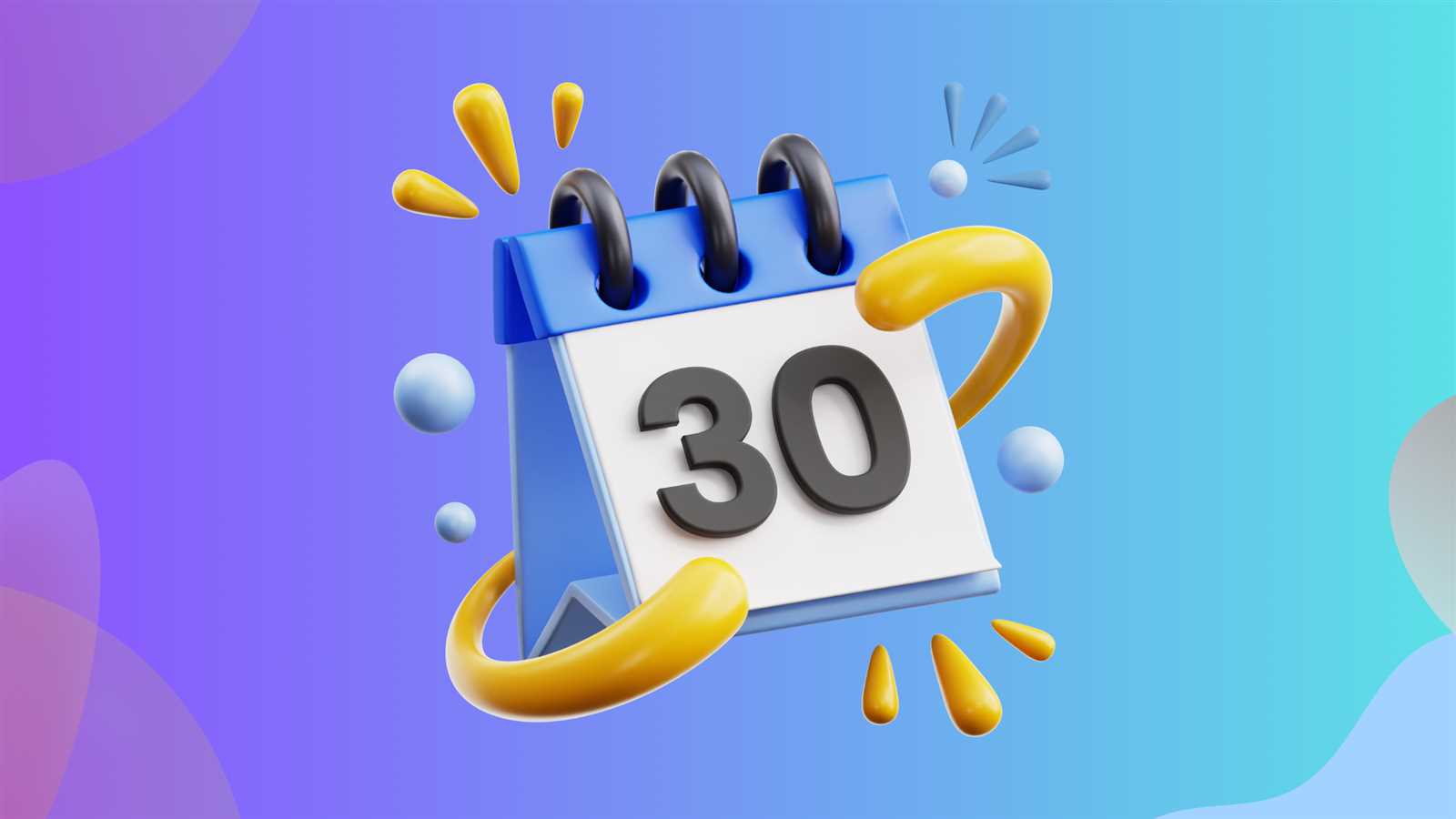
To ensure you stay on top of your obligations, consider establishing notifications for your personal events. Utilize reminders to prompt you ahead of time, allowing for adequate preparation. Whether you choose to receive alerts via email, push notifications, or through another method, timely reminders can prevent last-minute rushes and help maintain a well-organized lifestyle.
Tips for Managing Monthly Schedules
Effectively overseeing your monthly commitments can greatly enhance your productivity and reduce stress. By organizing your time thoughtfully, you can ensure that important tasks are completed while allowing for flexibility in your daily routine. Here are some strategies to help you navigate your responsibilities with ease.
1. Prioritize Your Tasks: Start by listing your obligations and categorizing them based on urgency and importance. Focus on high-priority items first, as this will help you allocate your time more effectively and prevent last-minute rushes.
2. Set Specific Goals: Define clear and achievable objectives for the month. Having concrete targets will guide your daily activities and keep you motivated throughout the month. Break larger goals into smaller, manageable steps to track your progress easily.
3. Allocate Time Blocks: Designate specific blocks of time for different activities. This method helps prevent distractions and allows you to concentrate fully on each task. Be sure to include breaks to recharge your energy and maintain focus.
4. Review and Adjust: Regularly assess your progress and make adjustments as needed. Life can be unpredictable, so being flexible with your plans will enable you to adapt to changes while still staying on track.
5. Use Visual Aids: Consider utilizing visual tools, such as charts or planners, to keep your schedule in view. This will serve as a constant reminder of your commitments and help you maintain a balanced approach to your responsibilities.
By implementing these tips, you can create a structured yet adaptable approach to managing your monthly commitments, leading to increased efficiency and a more balanced lifestyle.
Integrating Vertex 42 with Excel
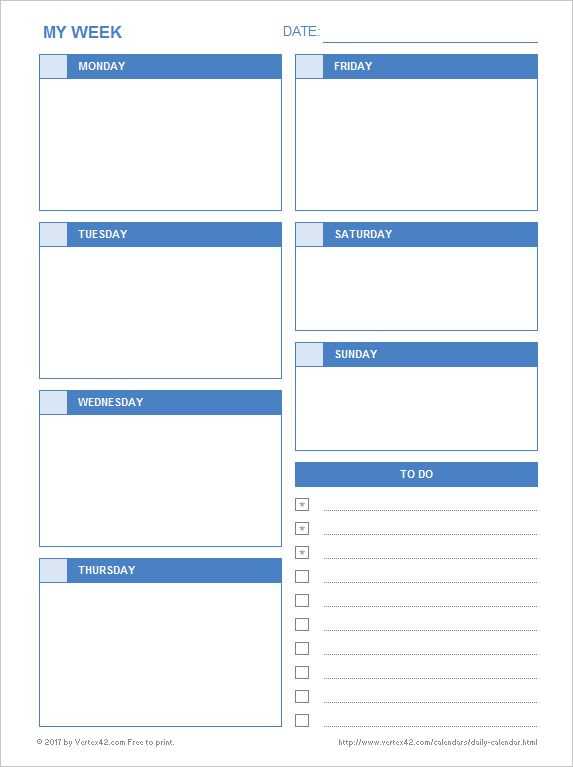
Combining various tools can enhance productivity and streamline the process of managing time effectively. Using one of the widely recognized resources alongside a powerful spreadsheet application allows users to leverage the features of both, resulting in a more efficient planning experience. This section will explore how to utilize this synergy for improved organization and task management.
Steps to Integrate the Resource with Spreadsheet Software
The integration process is straightforward and can be accomplished in a few simple steps:
- Download the desired file from the resource website.
- Open the downloaded file using the spreadsheet application.
- Customize the layout to suit your specific requirements.
- Save the modified document for future use.
Benefits of Using This Combination
Employing this combination of tools offers numerous advantages:
- Enhanced flexibility in organizing tasks and events.
- Improved accessibility through cloud storage options.
- Ability to share and collaborate with others seamlessly.
Feature Benefits Customization Tailor to personal needs and preferences Collaboration Easily share and work with others Data Analysis Utilize built-in formulas and functions By merging these resources, users can optimize their planning process and achieve better time management results.
Adapting Templates for Business Needs
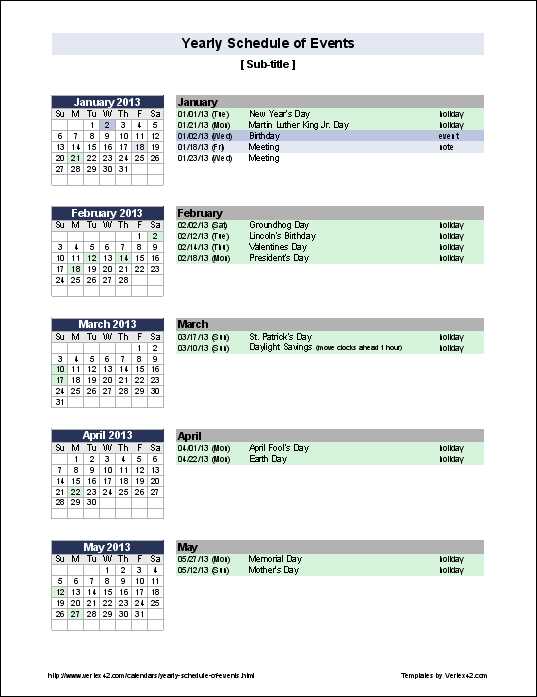
Customizing pre-designed formats to align with specific organizational requirements can significantly enhance efficiency and effectiveness. This approach allows businesses to create a cohesive and professional appearance while ensuring that all essential elements are included to meet their operational goals. By tailoring existing designs, companies can save time and resources, enabling them to focus on core activities.
Identifying Specific Requirements
To successfully modify a design, it is crucial to first identify the unique needs of the business. This involves understanding the target audience, the objectives of the document, and any necessary branding elements. By clearly defining these factors, organizations can make informed decisions about which features to retain, alter, or eliminate. This process not only ensures relevance but also maximizes the impact of the final product.
Incorporating Branding Elements
Once the specific needs are established, the next step is to incorporate branding elements that reflect the organization’s identity. This can include adjusting color schemes, fonts, and logos to create a consistent look across all materials. Strong branding not only reinforces recognition but also conveys professionalism and credibility. By aligning all aspects with the company’s image, the result is a polished and coherent presentation that resonates with stakeholders.
Organizing Family Schedules with Ease
Coordinating the various activities and commitments of family members can be a challenging task. With busy lives filled with work, school, and extracurricular events, having a structured approach can make all the difference. Utilizing an organized framework allows families to visualize their schedules, minimize conflicts, and ensure everyone stays on the same page.
Creating a Shared Framework
Establishing a common framework for managing schedules involves creating a visual representation that everyone can access. This might include designating a specific area in the home for displaying important dates and events, ensuring that each family member can contribute. By allowing input from everyone, it fosters a sense of ownership and responsibility toward family commitments.
Setting Regular Check-Ins
Regular meetings can enhance communication and collaboration within the family. Setting aside time each week to review upcoming activities not only reinforces accountability but also helps address any scheduling conflicts early. This practice can transform how families manage their time together, making it easier to enjoy shared experiences without the stress of last-minute adjustments.
Using Vertex 42 for Project Planning
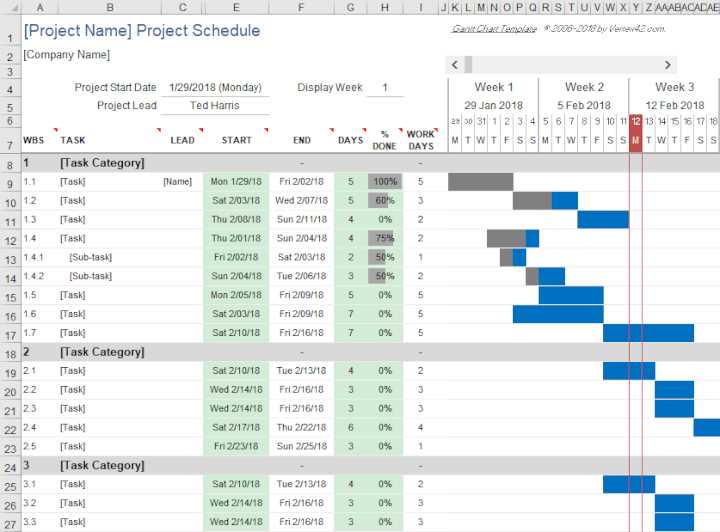
Effective project management requires the right tools to keep tasks organized and on track. Utilizing structured worksheets can greatly enhance planning processes, allowing teams to visualize their objectives and deadlines. These resources facilitate better communication and ensure that every participant is aware of their responsibilities, promoting overall efficiency.
Organizing Tasks and Milestones
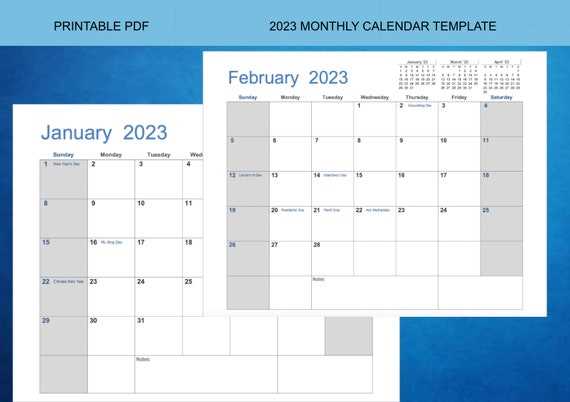
One of the primary benefits of employing structured worksheets is the ability to categorize tasks and establish key milestones. This organization enables project managers to prioritize activities, allocate resources effectively, and monitor progress throughout the project lifecycle. With a well-defined approach, teams can easily identify critical paths and potential bottlenecks.
Tracking Progress and Adjusting Plans
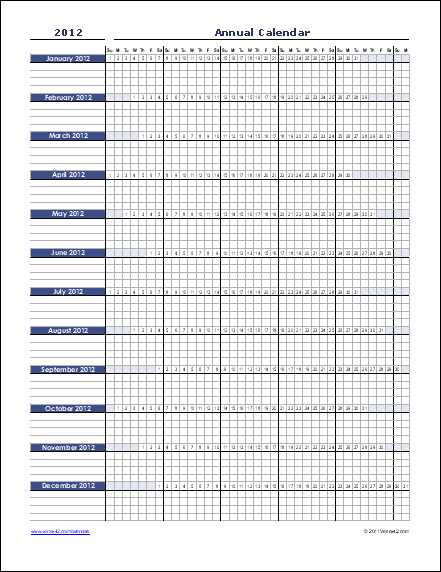
Another significant advantage of these resources is the capability to track ongoing progress. By regularly updating the status of tasks, managers can assess whether the project is proceeding as planned or if adjustments are necessary. This iterative process helps maintain momentum and ensures that goals are met within the designated timeframe.
Task Assigned To Start Date End Date Status Define project scope John Doe 2024-11-01 2024-11-05 Completed Research requirements Jane Smith 2024-11-06 2024-11-12 In Progress Develop project plan Emily Johnson 2024-11-13 2024-11-20 Not Started Implement solutions Michael Brown 2024-11-21 2024-11-30 Not Started Creating Printable Weekly Planners
Designing a personalized weekly planner can significantly enhance productivity and organization. These planners serve as effective tools to manage tasks, set goals, and allocate time for various activities throughout the week. By crafting a tailored layout, users can address their unique scheduling needs and preferences, ultimately leading to a more structured approach to time management.
Choosing the Right Format
When developing a weekly planner, it is crucial to select a format that suits individual requirements. Options can range from minimalist designs to more detailed layouts that include space for notes, priorities, and reminders. Consideration of the size, orientation, and overall aesthetic is important, as these factors will impact usability and visual appeal.
Incorporating Functional Elements
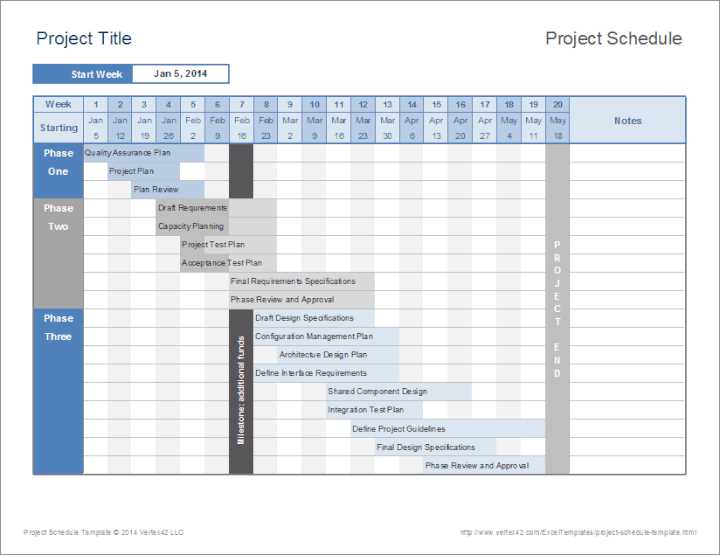
To maximize the effectiveness of a weekly planner, incorporating functional elements is key. Features such as sections for daily tasks, deadlines, and weekly goals can enhance clarity and focus. Additionally, including motivational quotes or weekly reflections can provide encouragement and promote mindfulness in planning. This blend of functionality and inspiration can lead to a more engaging planning experience.